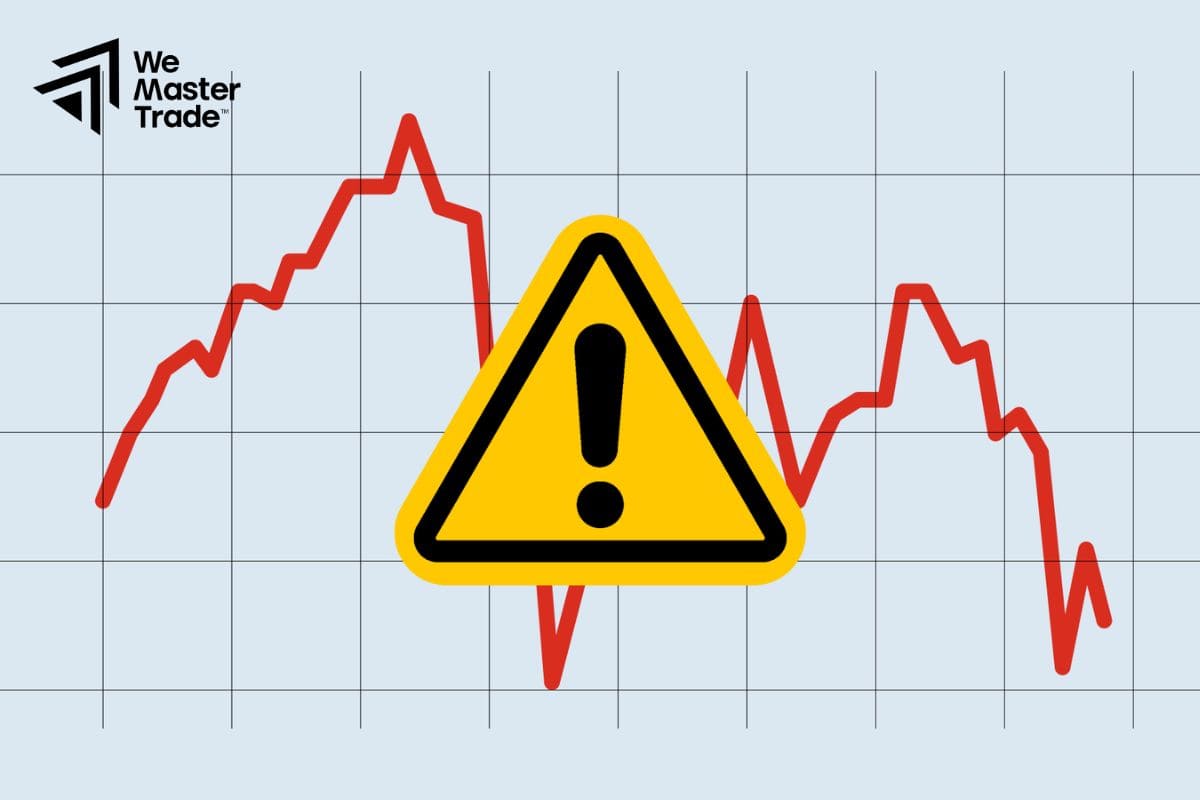The prop firm model is a new and exciting form of investment, offering traders many opportunities to engage with the market. However, before deciding to join, traders must first clearly understand this model—especially the common difficulties at prop firms—in order to draw valuable lessons and achieve the most effective trading journey. All key points are summarized in the following article.
See more:
- How Much Do Prop Firm Traders Make? Salary Expectations and More
- How to apply for a real estate prop firm certificate extremely reputable
- How Do Prop Firms Make Money? An In-Depth Look at Revenue
The Most Common Difficulties at Prop Firms
Prop trading offers many opportunities for traders. However, it also comes with a fair share of difficulties, from market risks and performance pressure to strict risk management requirements. Below are the major difficulties traders need to be aware of and prepare for when participating in prop firm trading.
Risk Management in a Volatile Market

The financial market is constantly changing and unpredictable. A strategy that works well today could fail tomorrow. Traders at prop firms not only need to make quick decisions but also strictly adhere to the firm’s risk management rules.
- Limited drawdown levels: Most prop firms impose a maximum loss limit (daily drawdown & total drawdown). If this limit is exceeded, the trader’s account may be deactivated.
- Impacted trading psychology: Traders can easily become stressed when trying to maintain discipline and avoid being influenced by emotions.
- Trading strategies must quickly adapt: A familiar setup may not always work well, especially under highly volatile market conditions.
Pressure to Maintain Consistent Performance

Prop firms require traders to maintain steady profitability in order to continue using the firm’s capital. This is one of the major difficulties at prop firms, as not all traders are able to generate consistent monthly profits.
- Trial period: Before trading on a real account, traders must pass an assessment round. Many people fail here due to not being able to control their psychology or violating risk management rules.
- Risk of being removed for poor performance: Some prop firms have policies to cut underperforming traders if they fail to meet performance standards after a certain period.
- Finding the balance between profit and safety: Being too cautious may prevent traders from hitting profit targets, while taking on excessive risk can easily lead to breaching limits.
Strategies That Fit Prop Firm Conditions

Not all trading strategies are compatible with a prop firm’s rules. Some firms impose restrictions on certain styles, such as:
- News trading: Some prop firms do not allow traders to capitalize on news events due to the high volatility risks involved.
- Scalping or high-frequency trading: Some systems require a minimum holding time for trades, limiting fast-paced trading styles.
- Weekend or overnight positions: Certain prop firms prohibit holding trades over the weekend or overnight, which can be a major obstacle for traders who rely on long-term strategies.
Technology Systems and Order Execution Speed
Even though prop firms offer modern trading platforms, traders may still encounter issues related to order execution speed, spreads, and latency.
- Orders not filled at the desired price: In volatile markets, delays can cause traders to experience slippage.
- Widened Spreads: This is especially common during news releases or near the end of trading sessions.
- Technical issues: If the prop firm’s server encounters problems, the trader’s account may be affected.
High Profits, But Not Easy to Achieve

While prop firms offer attractive profit-sharing ratios, not every trader can reach their desired income levels.
- Profit split ratios aren’t fixed: Some firms adjust their profit-sharing models based on the trader’s performance.
- Taxes and withdrawal fees: Traders should consider fees and taxes that may reduce their actual profits.
- No fixed income: Without effective trading, traders may go through months without earning any income.
How to Overcome Difficulties at Prop Firms
To overcome difficulties and maintain long-term success with a prop firm account, traders need to build strong strategies. Below are key steps to help traders effectively handle difficulties at prop firms:
Understand the Rules of the Prop Firm

Each prop firm has its own set of rules that traders must follow:
- Profit targets: If the requirement is a 10% profit, break it down into daily or weekly goals to make it more manageable.
- Risk limits: Most prop firms impose a maximum daily and overall drawdown. Always calculate your risk before entering a trade to avoid violations.
- Suitable trading strategies: Not all trading styles align with a prop firm’s rules. Choose a strategy that helps you maintain the highest level of discipline.
Develop an Effective Trading Plan
- Choose your trading strategy: Stick to 1–2 strategies instead of constantly switching. Consistency makes it easier to control risk.
- Set realistic profit goals: If your target is 10% profit, break it into smaller milestones to ease pressure.
- Proper risk management: Never risk more than 1% of your account on a single trade. This helps you preserve your capital even during losing streaks.
Test Your Strategy Before Applying It
- Backtesting: Analyze historical data to evaluate the strategy’s performance under different market conditions.
- Forward testing: Use demo trading to test how well the strategy works in real-time market conditions.
Strict Risk and Capital Management

- Use stop-loss orders: Always set a stop-loss to protect your account from unexpected market movements.
- Avoid overtrading: When facing a losing streak, take a break instead of trying to “recover losses.”
- Focus on small but consistent profits: Safe trading helps you pass challenges without relying on big winning trades.
Control Your Emotions While Trading
Unstable emotions can cause traders to lose control—especially after a series of consecutive losses.
- Maintain a growth mindset: View each loss as a lesson rather than a failure.
- Don’t obsess over the outcome of individual trades: Focus on executing the strategy correctly instead of only chasing short-term profits.
- Use psychological control techniques: Practices like meditation or keeping a trading journal can help you stay calm during market volatility.
Maintain a Consistent Trading Schedule
- Choose optimal trading times: The London and New York sessions offer high liquidity, allowing for faster order execution.
- Avoid trading during major news events: Sharp volatility may cause you to breach risk management rules.
Regularly Evaluate Your Trading Performance
- Review your trading journal: Record entry reasons, outcomes, and your emotional state to learn from past trades.
- Analyze trading data: Identify win/loss ratios and risk/reward ratios to refine your strategy.
- Adjust when necessary: If your current strategy isn’t effective, make changes—but always ensure they comply with your prop firm’s rules.
Conclusion
In summary, prop trading offers the potential for significant profits, but it also comes with many challenges. Most difficulties at prop firms stem from a lack of preparation in skills, mindset, and discipline. However, if you can optimize your strategy, manage risk effectively, and maintain a strong psychological foundation, you’ll have a solid chance of overcoming the difficulties at prop firms and achieving consistency in your trading.
See more:











